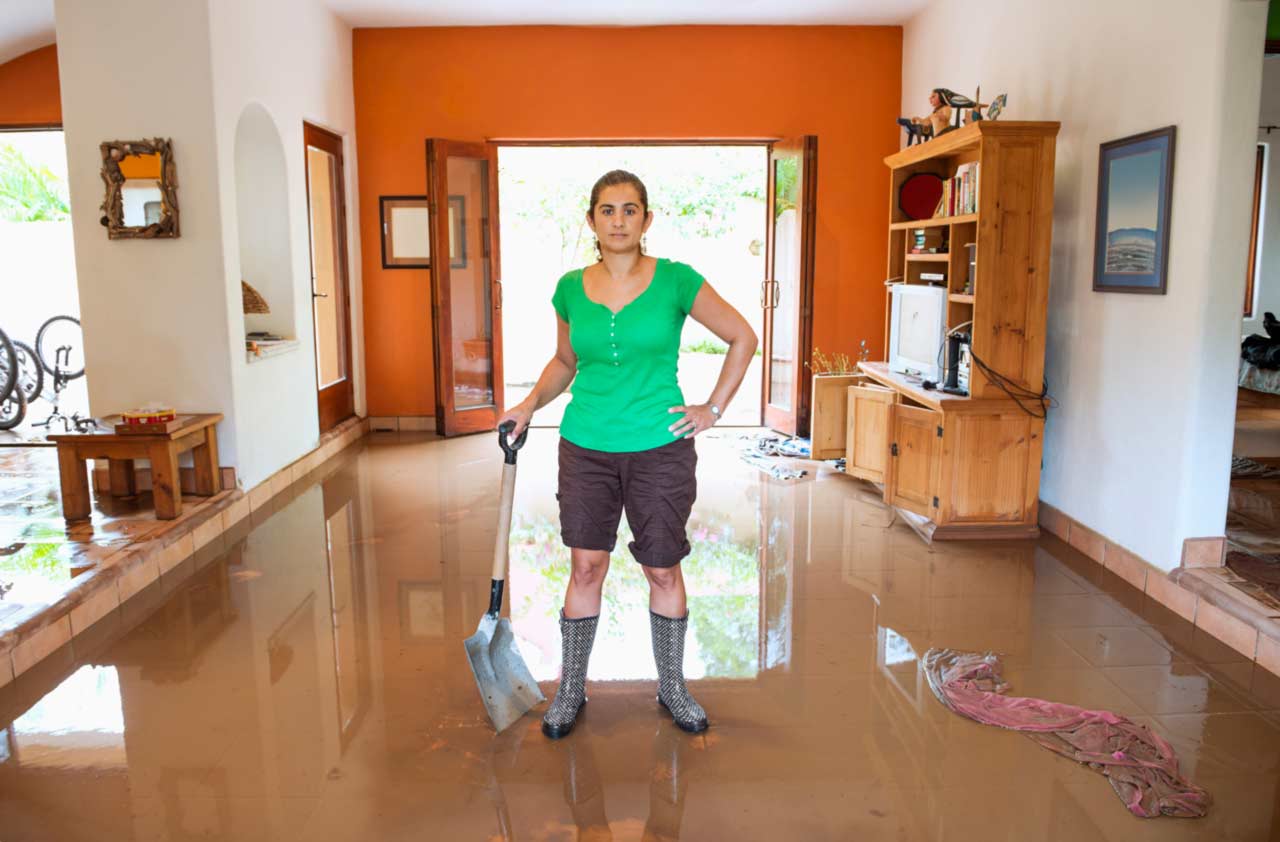Hurricanes Shed Light on Inadequate Insurance Coverage
Did you know that standard homeowner policies don’t cover flooding from heavy rains? And that people who don’t live in flood zones file water-damage claims about as often as those who do? It's time to check your coverage.


Profit and prosper with the best of Kiplinger's advice on investing, taxes, retirement, personal finance and much more. Delivered daily. Enter your email in the box and click Sign Me Up.
You are now subscribed
Your newsletter sign-up was successful
Want to add more newsletters?

Delivered daily
Kiplinger Today
Profit and prosper with the best of Kiplinger's advice on investing, taxes, retirement, personal finance and much more delivered daily. Smart money moves start here.

Sent five days a week
Kiplinger A Step Ahead
Get practical help to make better financial decisions in your everyday life, from spending to savings on top deals.

Delivered daily
Kiplinger Closing Bell
Get today's biggest financial and investing headlines delivered to your inbox every day the U.S. stock market is open.

Sent twice a week
Kiplinger Adviser Intel
Financial pros across the country share best practices and fresh tactics to preserve and grow your wealth.

Delivered weekly
Kiplinger Tax Tips
Trim your federal and state tax bills with practical tax-planning and tax-cutting strategies.

Sent twice a week
Kiplinger Retirement Tips
Your twice-a-week guide to planning and enjoying a financially secure and richly rewarding retirement

Sent bimonthly.
Kiplinger Adviser Angle
Insights for advisers, wealth managers and other financial professionals.

Sent twice a week
Kiplinger Investing Weekly
Your twice-a-week roundup of promising stocks, funds, companies and industries you should consider, ones you should avoid, and why.

Sent weekly for six weeks
Kiplinger Invest for Retirement
Your step-by-step six-part series on how to invest for retirement, from devising a successful strategy to exactly which investments to choose.
In light of the historic hurricanes that pummeled Texas and Florida this summer, there were some hard truths discovered about flooding and insurance.
According to the Insurance Information Institute, only 15% of the 1.6 million homes in Houston, as well as Harris Township where Houston is located, had flood insurance. In addition, only 28% of homes located in “high-risk” flood zones in Texas had flood insurance prior to the hurricanes.
Regarding the coastal counties in Florida, according to FEMA, 42% of homes have flood insurance.
From just $107.88 $24.99 for Kiplinger Personal Finance
Become a smarter, better informed investor. Subscribe from just $107.88 $24.99, plus get up to 4 Special Issues

Sign up for Kiplinger’s Free Newsletters
Profit and prosper with the best of expert advice on investing, taxes, retirement, personal finance and more - straight to your e-mail.
Profit and prosper with the best of expert advice - straight to your e-mail.
Standard homeowner insurance policies do not cover flooding from natural events such as heavy rains and hurricanes. Yet, alarmingly, a growing number of residents are reducing coverage or are not even purchasing adequate insurance even as instances of major flooding continue to break news regularly.
Unfortunately, lack of coverage or being underinsured causes considerable financial distress to millions of Americans every year. Major hurricanes are often reminders that we need to review our policies to ensure we are properly covered, but still many refuse to (or just can’t) bear the costs of protection or change their policies based on the value of their home and personal belongings.
Flood Insurance
Many homeowners do not think they need to purchase flood insurance if they do not live in a flood zone, however, there are proportionally the same number of claims made for flooding in flood zones as in non-flood zone locations. So, just because one lives in a non-typical flood area does not mean they shouldn’t consider coverage.
For example, in 2014, the Metro Detroit area got hit with 6 inches of rain in a matter of 12 hours, breaking records. Statistically speaking, rainfall amounts such as this occur only once every 500 years in Detroit. In the city of Warren, just north of Detroit, nearly 40% of the buildings saw some level of damage in the flooding of 2014, with the value exceeding $1 billion. Basement flooding is generally not covered in a typical homeowner’s policy, and those expecting relief had to wait at least one month for the governor to request federal disaster relief funds and over two years to receive government help.
It doesn’t take rainfall of historic proportions to flood a basement, and policies — especially for those in areas not prone to flooding — are not as expensive as one may think. The average price for a policy runs about $700 per year, depending on your location, according to consumer research site ValuePenguin. Although FEMA offers flood insurance coverage at an affordable rate, there are limits on the policies that often lead to inadequate coverage. Significant damage can easily exceed the $250,000 limit in residential building property coverage, for example.
Jewelry and Fine Art
Many homeowner policies cover lost, stolen or damaged jewelry or fine art. In this instance, it is imperative to take a closer look at the details and see how much is actually covered.
Policies have special limits on jewelry and/or fine arts, often set at $10,000. It doesn’t take more than a few pieces of nice jewelry to reach this maximum and, if your household contains jewelry or artwork collected over the course of 20 or 30 years, there simply may be no way to recover the costs with a basic insurance policy if something were to happen.
Umbrella
Umbrella insurance is designed to provide additional coverage above your underlying insurance policies. When it comes to general negligence, such as being at-fault for a car accident, umbrella insurance holds a lot of value. Best of all, it is not as pricey as you might suspect. (Use Kiplinger.com's free tool to quickly calculate how much umbrella insurance you need.)
For instance, if someone were to injure themselves on your property, they may file damages for $500,000; but your liability might only cover $250,000. Umbrella insurance covers the excess liability at a cost generally below what you would pay if you increased the liability on your policies.
Those who own rental properties, own a boat or simply want to keep their hard-earned assets from being lost in a lawsuit or to cover liability above a policy will find umbrella insurance a beneficial investment.
Another reason to consider an umbrella is if your teenager just acquired their driver’s license. Umbrella insurance will provide a high level of coverage for those most likely to be the cause of an accident.
Other insurance avenues to explore involve guaranteed replacement costs for home damage, wind insurance in hurricane-prone locations and water-backup insurance.
Insurance audits are great ways to see if your policies are providing the ideal level of coverage at the best rates. Taking a comprehensive look at your policies and other options in the market will ensure you are adequately covered for all of life’s accidents or catastrophes.
Profit and prosper with the best of Kiplinger's advice on investing, taxes, retirement, personal finance and much more. Delivered daily. Enter your email in the box and click Sign Me Up.

Ari Fischman is a Certified Financial Planner who has provided insurance, estate planning and financial solutions for affluent consumers. He is a Financial Adviser with Eagle Strategies LLC, a Registered Investment Adviser, and through Eagle Strategies, he has access to some institutional third-party wealth management firms that manage client assets. Fischman Insurance Group is not owned or operated by Eagle Strategies LLC.
-
 Quiz: Do You Know How to Avoid the "Medigap Trap?"
Quiz: Do You Know How to Avoid the "Medigap Trap?"Quiz Test your basic knowledge of the "Medigap Trap" in our quick quiz.
-
 5 Top Tax-Efficient Mutual Funds for Smarter Investing
5 Top Tax-Efficient Mutual Funds for Smarter InvestingMutual funds are many things, but "tax-friendly" usually isn't one of them. These are the exceptions.
-
 AI Sparks Existential Crisis for Software Stocks
AI Sparks Existential Crisis for Software StocksThe Kiplinger Letter Fears that SaaS subscription software could be rendered obsolete by artificial intelligence make investors jittery.
-
 Social Security Break-Even Math Is Helpful, But Don't Let It Dictate When You'll File
Social Security Break-Even Math Is Helpful, But Don't Let It Dictate When You'll FileYour Social Security break-even age tells you how long you'd need to live for delaying to pay off, but shouldn't be the sole basis for deciding when to claim.
-
 I'm an Opportunity Zone Pro: This Is How to Deliver Roth-Like Tax-Free Growth (Without Contribution Limits)
I'm an Opportunity Zone Pro: This Is How to Deliver Roth-Like Tax-Free Growth (Without Contribution Limits)Investors who combine Roth IRAs, the gold standard of tax-free savings, with qualified opportunity funds could enjoy decades of tax-free growth.
-
 One of the Most Powerful Wealth-Building Moves a Woman Can Make: A Midcareer Pivot
One of the Most Powerful Wealth-Building Moves a Woman Can Make: A Midcareer PivotIf it feels like you can't sustain what you're doing for the next 20 years, it's time for an honest look at what's draining you and what energizes you.
-
 I'm a Wealth Adviser Obsessed With Mahjong: Here Are 8 Ways It Can Teach Us How to Manage Our Money
I'm a Wealth Adviser Obsessed With Mahjong: Here Are 8 Ways It Can Teach Us How to Manage Our MoneyThis increasingly popular Chinese game can teach us not only how to help manage our money but also how important it is to connect with other people.
-
 Looking for a Financial Book That Won't Put Your Young Adult to Sleep? This One Makes 'Cents'
Looking for a Financial Book That Won't Put Your Young Adult to Sleep? This One Makes 'Cents'"Wealth Your Way" by Cosmo DeStefano offers a highly accessible guide for young adults and their parents on building wealth through simple, consistent habits.
-
 Global Uncertainty Has Investors Running Scared: This Is How Advisers Can Reassure Them
Global Uncertainty Has Investors Running Scared: This Is How Advisers Can Reassure ThemHow can advisers reassure clients nervous about their plans in an increasingly complex and rapidly changing world? This conversational framework provides the key.
-
 I'm a Real Estate Investing Pro: This Is How to Use 1031 Exchanges to Scale Up Your Real Estate Empire
I'm a Real Estate Investing Pro: This Is How to Use 1031 Exchanges to Scale Up Your Real Estate EmpireSmall rental properties can be excellent investments, but you can use 1031 exchanges to transition to commercial real estate for bigger wealth-building.
-
 Should You Jump on the Roth Conversion Bandwagon? A Financial Adviser Weighs In
Should You Jump on the Roth Conversion Bandwagon? A Financial Adviser Weighs InRoth conversions are all the rage, but what works well for one household can cause financial strain for another. This is what you should consider before moving ahead.